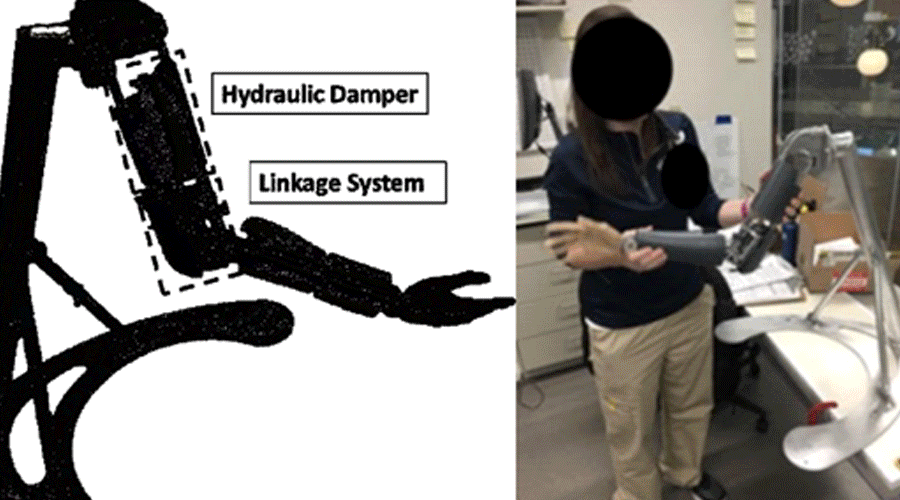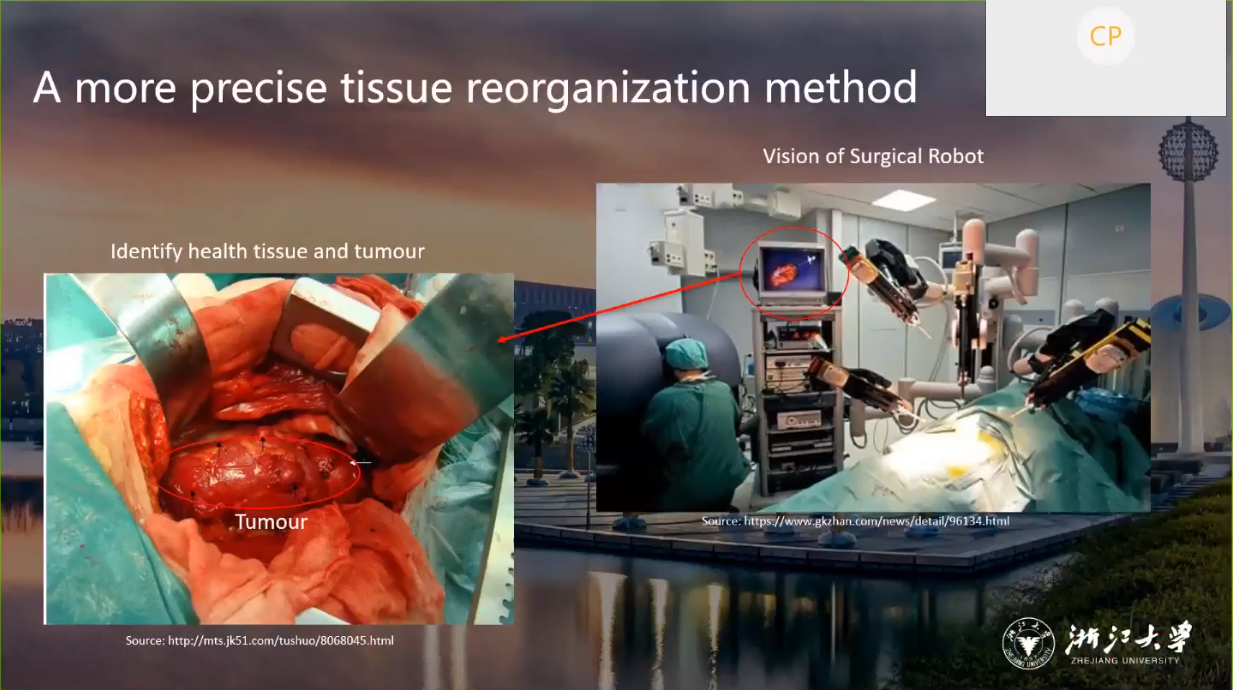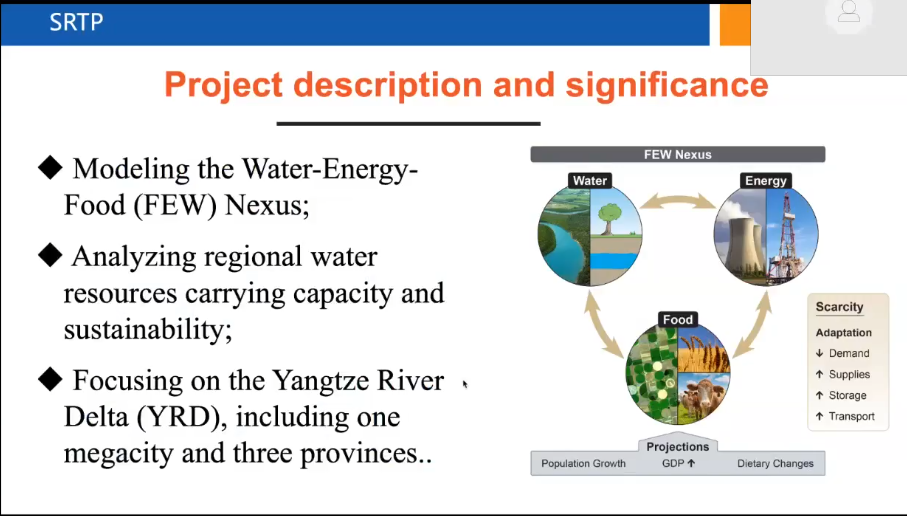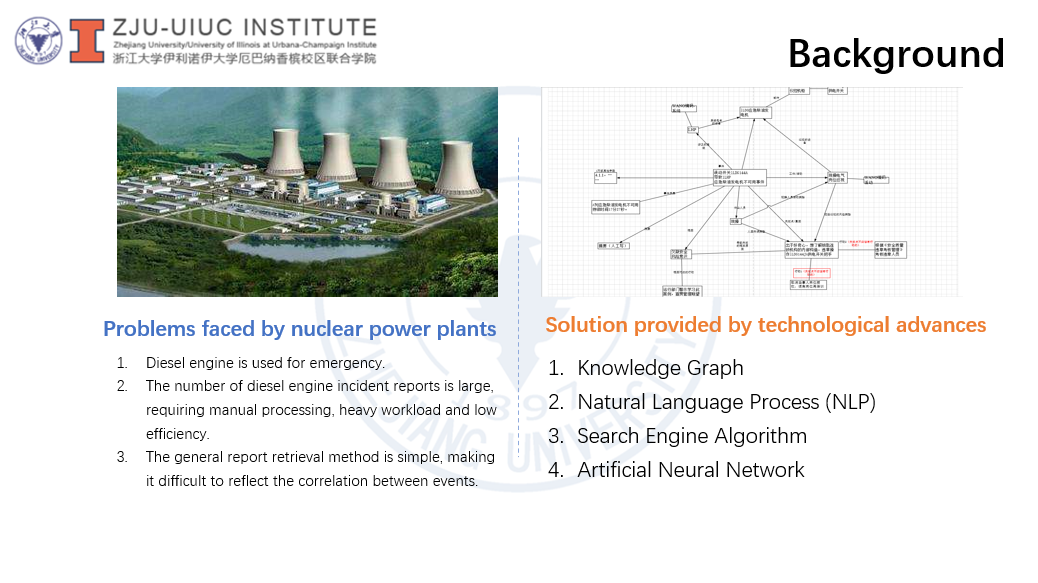
A formal online defense of ZJUI students’ Student Research Training Programs was held in April. A total of 81 students participated in various research programs based on their own interests. Students and teams submitted 31 projects, with all participants demonstrating high personal engagement. ZJUI is excited to have this high level of enthusiastic participation. To list just a few, our students’ fascinating research programs included AI-automation, a design method for cross-laminated bamboo, biological cell image processing, and many others. During the research process, our students did not limit themselves, as they used interdisciplinary knowledge to look into everyday issues, with the goal of solving existing problems. The process has been challenging but ZJUI is delighted to see its students contributing to international research innovation. A few project examples are summarized below.
Caring for stroke patients
“Research on Wearable Devices Based on Surface EMG signals”
Students: Xiao Shuhong, Yu Yue, Zheng Xiuwen Instructor: Wang Hongwei

Concerned about the growing numbers of stroke patients who also suffer from paralysis, Xiao, Yu, and Zheng came up with a solution: wearable devices that respond to signals sent by motor nerves near the skin surface in stroke patients, which can then be used for more productive rehabilitation. The general idea behind the project exploits the relationship between motor nerves in the brain and EMG signals under the skin. By observing specific segments in EMG signals measured in the hand and corresponding actions, students managed to draw out relationships between the two and enter those into the device. This device’s objective is to reinforce intended actions, which in certain cases can be quite difficult given patient circumstances, subsequently speeding up the recovery process. This project applies electronics engineering, computer engineering, electrical engineering, and automation engineering.

“The optimization of the man-machine interaction system and endoscope vision about minimally invasive surgical robot on tumor operation.”
Students: Liu Tianyu, Chang Junyu Instructor: Yang Liangjing
Having in mind China’s situation of growing cancer patients and that China has a higher mortality rate in cancer patients than other countries, Liu and Chang decided to address the issue of surgery robots in the medical field being too expensive, which result in limited accessibility to such technology.
Liu and Chang’s research provided optimization strategies for surgical robots on tumor operation as they focus on the endoscope vision of the robot as well as the man-machine interaction system.
Focusing on Sustainability

“Research on Water Resources Carrying Capacity and Sustainability in Water-Energy-Food Nexus”
Students: Sun Yi fei, Hong Sicong Instructor: Zhu Tingju
Focusing on Yangtze River Delta’s sustainability, this project by Sun and Hong aims to explore the complexities behind the water carrying capacity in Water-Energy-Food (FEW) Nexus. Based on the current FEW system, Sun and Hong researched on better ways to build a model that focus on energy and food in the supply-use-expend water resource model. Students obtained data and statistics from the local government and used distributed simulation to analyze Yangtze River Delta sustainability levels and effectiveness, giving profound insights on future improvements for a better future.
Prevention as the best cure

“Knowledge Extraction and Retrieval from Diesel Engine Operation Reports based on NLP and Knowledge Graph”
Students: Wang Chong Yu, Wang Chen Hao, Li Jing Shu Instructor: Wang Hongwei
This project aims to address the maintenance problems faced by nuclear power plants relating to diesel engines that has not been adequately researched. In their research, Wang and his peers analyze the events, status reports and solutions of diesel engines in nuclear power plants, draw out relationships between different control factors and suggested more robust solutions for existing problems. While collecting many data sets to generate a usable, intelligent algorithm, the students strive to develop an intelligent search engine that could be continuously optimized as well as producing a ‘knowledge map’ that could show relationships between different parts of the system.
The significance of this project is it can reduce the costs needed in nuclear power plants operation, leading to higher work efficiency, at the same time developing a safe and applicable model that might even be transferrable to other risk-prevention models.
Article | summarize from the slides of the students
Translate | Lai Shuxian
